The competition to build up to three Fleet Solid Support Ships was suspended last year as a ‘value for money solution could not be reached’.
Kevan Jones Labour, Member of Parliament for North Durham, asked in a written question:
“To ask the Secretary of State for Defence, for what reasons the decision was taken to suspend the tendering process for the Fleet Solid Support Ships on 6 November 2019; and whether this decision has reduced the chances of the tendering process being concluded within the 2019-20 financial year.”
James Heappey, the Parliamentary Under-Secretary of State for Defence Procurement, responded:
“The decision to stop the Fleet Solid Support ship competition was taken because it had become clear that a value for money solution could not be reached. The Ministry of Defence is currently assessing the options, and as part of this process will review the requirement and any procurement strategy. It is not possible to provide any further details until this work has been completed.”
Andy Netherwood, an individual that served 26 years in the Royal Air Force with operational tours flying the C-130 and C-17 as well as staff tours in Strategy, Policy & Plans, Capability Development and on the Directing Staff at the UK Defence Academy, offered some clarification on what the above statement likely means.
‘Review the requirement’ probably doesn’t mean abandoning the buy entirely. More likely it’s value engineering i.e. asking if the MoD could get the price down by removing certain user requirements.
— Andy Netherwood (@AndyNetherwood) January 14, 2020
Competing for the work was a British consortium consisting of companies Babcock, BAE Systems, Cammell Laird and Rolls-Royce (forming Team UK) and international bidders Fincantieri (Italy), Navantia (Spain), Japan Marine United Corporation, and Daewoo Shipbuilding and Marine Engineering (South Korea).
Fincantieri and Daewoo Shipbuilding and Marine Engineering had already withdrawn, according to the Financial Times.
This left only Team UK, Navantia and Japan Marine United Corporation.
The Ministry of Defence earlier said in a statement:
“It is clear that the current approach will not deliver the requirement. We are now considering the most appropriate way forward for the procurement project.”
The UK Defence Journal believes this work should stay in the UK.


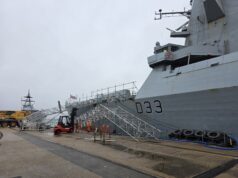
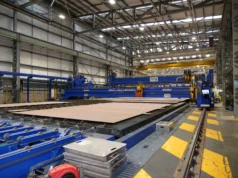
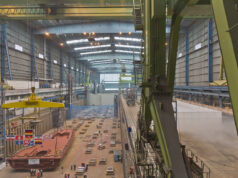

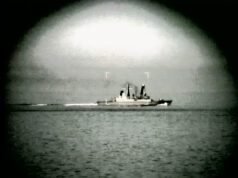
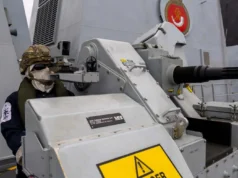


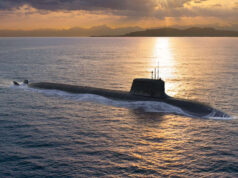


Sounds like a classic case of kicking the cost down the road to avoid paying now and ultimately paying more for less later on.
Sounds like they are doing what they did with the Type 31 contracts, suspend the competition and ‘review it’ and hope for a better price.
I saw shades of T31 in this announcement too. In fairness that did seem to work reasonably well for T31 but I’m never very confident in expecting good outcomes where big complex MoD procurements are concerned.
With yesterday’s disappointing quarterly growth figures for the U.K. some domestic economic stimulus beyond just the rumoured interest rate cut would be very helpful and domestic shipbuilding (assuming they would be U.K. built) pumps a significant percentage of the project costs straight back into the U.K. economy so can be a particularly potent medicine that we really need right now.
t31 contract still hasn’t been signed, so we will see what it ends up looking like both financially and equipment wise, and then we can decide if the delay actually paid off.
Another classic MOD/Treasury fudge
well if they don,t build them? will they use some of the money to fill the black hole in the defence budget they keep talking about.or will it just be wasted on crap we do not need instead of equipment we do need??
Probably use it to pay for KPMG to come in and do a cost savings analysis on the MOD…..
The likelihood of KPMG being paid to come in and act as a consultant are zero with Dominic Cummings running amok amongst the MOD procurement mandarins. He despises companies like that which provide very little value for their expensive fees.
Perhaps it’s just a pause until the 2020 SDSR guys?
After all, if (big if) the decision is reached to expand the fleet, more support ships will be needed as a natural extension.
There is no point starting discussions with contractors, until we know how many are needed and how the subsequent design will fit into a revised fleet.
This is what I suspect. And I think a fleet increase is coming based on Ben Wallace’s message the other day that we can’t rely on American hegemony any longer.
Johnson’s government have been running around left right and centre suspending large government projects to reassess them – part of Cumming’s shake up of the civil service. I expect this slots into that wider pattern
That would be my interpretation, but the view put forward Netherwood is worth bearing in mind.
That’s something good about Cummings then! Too much money is wasted with little or nothing to show for it!!
Just get the order in. Sooner ordered, sooner in service. Although not as urgently required as type 31 and 26 frigates or the Astute class subs.
Next SDSR I will definitely be more vocal about putting some numerical strength, thus atritional reserve, back into all 3 armed services.
The latest SecDef is right, we need to be able to fight wars alone if necessary and not have to rely on USA.
The tone Wallace took about not being able to rely on the US and having to recover our own independent strength has made me enormously positive about upcoming SDSR
Have you noted the ‘devil’s advocate’ article published on Thin Pinstripped?
This is a very worrying development. Sounds to me like the government is casting around for any way it can save money, and the defence budget is always an easy target.
I don’t think the politicising of the competition helped. I read that the completion became skewed in favour of the UK consortium. That means if the UK team thought they cannot lose as it would be politically unacceptable to give the order to anyone else they could name their price. The government not wanting to place the order overseas but cannot afford the price from what had become a politically rigged competition now has to rethink.
They will be built. Maybe only 2 sadly. Victoria, Rosalie and Austin cannot go on forever.
Fully agree we need these vessels in service but a prudent approach is wise as any big order item awarded to anything built in this country always seems to spiral in cost . If they can get a fixed price contract in place this will mean at least the taxpayers get full value for money . I am sure we all want a larger Royal Navy presence around the world and if savings are made hopefully this will lead to more ships in the water .
Astonishing. Is there any large organisation left in the U.K. that is led by fully adult people? Well, when you are not spending yuor own money …
Am I right in thinking the new owners of the Harland & Wolff yard, have links to Navantia? If so, a second UK option in a roundabout sort of way.
If the current approach is ‘not delivering the requirement’ then the requirement must have changed. Sir John Parker’s National Shipbuilding Strategy would suggest that ‘the requirement’ is a holistic build program encompassing not just replacement of Victoria and Rosalie but also Argus, the longterm replacement of Albion and Bulwark and maybe a review of whether QE class isn’t an expensive way of replacing Ocean; all in the context of post Brexit global positioning for the UK and likely construction of forward bases in the Caribbean and the Far East